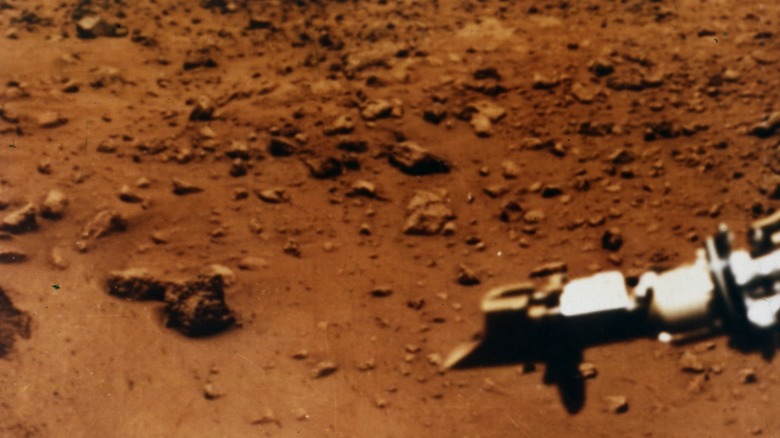This Revolutionary AI-Powered Robot Could Produce Oxygen On Mars
One of the most significant obstacles to human interstellar travel is our inability to breathe in the deep recesses of space. Oxygen is essential to life and isn't available in the same capacity as on Earth. As space agencies and researchers eye the exploration of Mars, being able to provide oxygen for extensive trips is critical. Scientists have speculated about life on the red planet, as well as viewing it as a possible secondary planet for human life.
Scientists from the University of Science and Technology of China in Hefei have published a study about a robot chemist that would be powered by artificial intelligence (AI). Its goal would be to take water from Mars and convert it into oxygen.
According to one of the lead researchers, Jun Jiang, "We have developed a robotic AI system that has a chemistry brain. We think our machine can make use of compounds in Martian ores without human guidance."
What is MOXIE?
The main challenge in making oxygen on Mars is that you must work only with what you have available on the planet. The robot turns meteorites on Mars into breathable air. Oxygen, for the robot chemist, would be the beginning of the opportunities for such technology.
The study, published in Nature Synthesis, notes, "Using a machine-learning model derived from both first-principles data and experimental measurements, this method automatically and rapidly identifies the optimal catalyst formula from more than three million possible compositions."
According to the study, it demonstrates that the robot chemist solves two major problems: the need for an unmanned synthesis system and the ability of the machine to discern what materials it's working with so it can do the former. AI robots are the preferred technology being explored to address the Mars-oxygen problem.
Michael Hecht at the Massachusetts Institute of Technology's Haystack Observatory in Westford worked on the Mars Oxygen In-Situ Resource Utilization Experiment, known as MOXIE, notes in a study that the robot could synthesize small amounts of oxygen in a Martian atmosphere made up mostly of carbon dioxide during a trip to the planet in 2021. He suggests that while its current output is minimal, there's no reason to think it couldn't be augmented.

